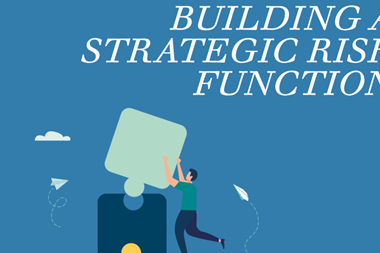StrategicRISK: Why do you think managing stress in the workplace is important?
Chris Jones: Stress has emerged as one of the major people risks for British business. To a degree, stress has always been there, but the increasing move to service industries, the fragmentation of lifestyles and less stable employment patterns are increasing its prevalence. Department for Work and Pensions (DWP) figures from 1995 show 592,000 people claiming Incapacity benefit and citing stress as a factor. By 2004, that number had doubled to 1,025,000. The logic is simple. British productivity is woeful compared to the US and some European countries. Productivity is affected by absence, and stress is the major cause of absence. Stress accounts for 17 million days of lost production every year. It directly costs £3.7bn. Of course it makes sense to manage it.
StrategicRISK: Are employers generally waking up to this?
Chris Jones: Some people were quick off the mark. There have been employee assistance programmes (EAP) around for about 20 years. However, they were seen as an employee benefit rather than as part of managing risk. Even so, only about 4.6 million people out of a workforce of 28 million are covered. But attitudes are changing. They can hardly do otherwise when 65% of GP's surgery time is taken up with stress-related illness, and when court awards for stress-related claims are increasing by 10% a year.
Furthermore, the regulators are active - the Health and Safety Executive (HSE) has already extended its brief to cover stress, and the law now makes it incumbent on employers to act. From 2006, employers will be responsible for the certification of absence. They are waking up. They have to.
StrategicRISK: What is your answer to those who think stress-related illness is politically-correct claptrap?
Chris Jones: Stress is real. Only a very small proportion use it as a fraudulent method of signing off work. We know it is real from the thousands of people we deal with every year. If you don't intervene early, it causes problems. The Association of British Insurers have found that in 30% of cases, anxiety and depression can lengthen the time taken to recover from an injury. The days when employers could stick their heads in the sand and say it is all in the mind are gone. Let me add that stress makes no distinction between genders either. Men and women can suffer equally from its effects.
StrategicRISK: Is risk-managing stress merely an added cost, or are there measurable business benefits?
Chris Jones: There are measurable benefits. Managing stress in the workplace reduces absence. Absence costs every employer £500 per employee, per year.
A third of that cost can be assigned to stress. If you put in procedures to manage stress, you will get results. It's not about being nice; it's about being fair to people. One organisation we worked with over long-term sickness achieved a 5 to 1 return on its investment. Others have achieved up to a 10 to 1 return by using EAPs.
StrategicRISK: How can employers best manage stress in the workplace?
Chris Jones: I think that the five main points are:
- Conduct a well-being audit (See the HSE website) Identify hotspots (typically areas of weak management) and review policies
- Provide training in absence management procedures
- Introduce an early warning system. Quantify the problem, understand the trends, the causes, and the frequency. Catch the problems early and deal with them quickly. All this help to prove to your employers' liability insurer that you are managing stress in the workplace.
- Provide access to professional confidential support.
- Above all, take a fresh approach to long-term sickness. Apply new thinking to traditional problems.
StrategicRISK: How can companies such as FirstAssist help employers and risk managers?
Chris Jones: We can provide help on every single one of the points I have mentioned above. And we can talk to your insurers too.
StrategicRISK: How do you see this area of risk management developing?
Chris Jones: Organisations who manage well-being are already delivering better business performance, but an awful lot of them are still taking the traditional approach to occupational health, to employee benefits, health and safety, and indeed to risk management.
We see occupational health, and health and safety, being increasingly outsourced to organisations which are manifestly more focused on the business benefits, while at the same time providing appropriate and timely care for employees.
We see tomorrow's risk manager who is concerned with managing workplace stress as working with disparate parts of his or her organisation to produce a joined-up policy and to make sure that intervention happens early.
It's a constructive and useful trend, which will benefit everyone involved in an organisation. And we hope to be part of it.
For further information please contact Chris Jones on +44 (0)208 652 1509 or email:chris.jones@firstassist.co.uk

















